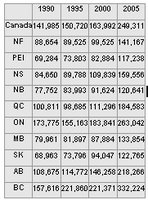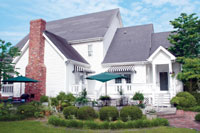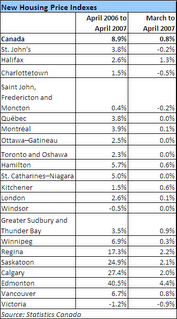 Choosing the Right School for Your Children
Choosing the Right School for Your ChildrenFor many families, a move to a new state or community means making difficult choices. Choosing from among the wide array of options of appropriate day care for younger children or schools for the older ones can be a complex and time-consuming chore. Parents need to examine their own basic values, their child-rearing and educational philosophies, and each child's needs when making decisions that will affect their child's future.
For many parents, choosing the best schools for their children determines other life choices. Newcomers usually investigate the public school systems thoroughly before selecting an area in which to settle. Each school district determines its own curriculum, requirements, and special programs. However, individual schools within a district can differ because of variations in student bodies, individual principals and teachers, and parental involvement. Neighborhoods with higher income levels and percentage of parents with college educations generally have schools with better test scores and a larger percentage of students going on to college. Real Estate agents are a good source of information in this area.
In comparing school districts and individual schools within each district, the following general questions should be asked:
Is the physical location of the school adequate and secure?
What is the school's teacher/student ratio?
What teaching methods (traditional, open classroom, team-teaching, etc.) are used?
Observe classes if possible.
What arts programs are offered?
What are the special education facilities and programs in each school/jurisdiction?
Is homework given and, if so, how much each night?
Is there an adequate sports program?
What extracurricular clubs and interest groups exist?
Parents of elementary school children should ask other questions:
Can a young child walk to school safely without crossing main roads?
Is transportation available?
Is there sufficient space for recreation and adequate playground supervision?
Are there after-school and extended day programs? Parents can use school profiles and interviews with principals or counselors to answer the following questions:
Does the school have a good orientation program for new students?
What courses are included in the basic curriculum?
What elective courses are available?
What Advanced Placement courses are offered?
Is there vocational education for those students wishing to take a trade, skill or career course?
How have students scored recently on standardized tests (such as the S.A.T.)?
What percentage of high school students go to college? How are college and career counseling handled?
Private schooling is another option to be considered Classes are usually smaller, children may receive more individual attention, and college-bound students are given more personalized counseling. Schools sponsored by religious organizations are often less costly than other independent schools, but their classes tend to be larger.
Students interested in private schools should begin the application process early as the most competitive schools have February deadlines. Since many of the most selective schools require interviews, families should consider scheduling interviews before a formal application is made. It is unwise to apply to only one school. Because of space limitations, many bright children are denied entrance to the more popular schools. Some Catholic schools give priority to families that are members of the parish. Applying to four or five schools should prevent disappointment.
Home Playground Safety Checklist
To make sure your home playground is a safe place to play:
Install and maintain a shock-absorbing surface around the play equipment. Use at least 9 inches of wood chips, mulch, or shredded rubber for play equipment up to 7 feet high.
Install protective surfacing at least 6 feet in all directions from play equipment.
Never attach - or allow children to attach - ropes, jump ropes, clotheslines, or pet leashes to play equipment; children can strangle on these.
Check hardware for open "S" hooks or protruding bolt ends, which can be hazardous.
Check for spaces that could trap children, such as openings in guardrails or between ladder rungs; these spaces should measure less than 3.5 inches or more than 9 inches.
Make sure platforms and ramps have guardrails to prevent falls.
Check for sharp points or edges in equipment.
Remove tripping hazards, like exposed concrete footings, tree stumps, and rocks.
Regularly check play equipment and surfacing to make sure both are in good condition.
Carefully supervise children on play equipment to make sure they are safe.
More about schools in Mississaug and the GTA
For more information please contact A. Mark Argentino
A. Mark Argentino, Broker, P.Eng.,
Specializing in Residential & Investment Real Estate
RE/MAX Realty Specialists Inc., Brokerage
2691 Credit Valley Road, Suite 101, Mississauga, Ontario L5M 7A1
BUS. 905-828-3434
FAX. 905-828-2829
E-MAIL:
mark@mississauga4sale.comWebsite:
Mississauga4Sale.com
















